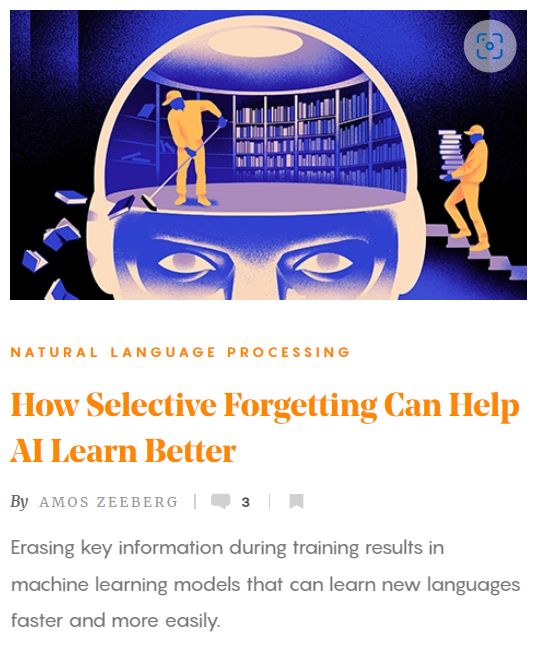Memory is like an attic. If there is lots of stuff that makes it slow and if the attic is full of stuff, that means the owner must check much more merchandise than in a clean attic. When people are cleaning their attics and carrying unnecessary merchandise away.
That makes it easier to use that room. People forget things because that makes their memory effective. If there are left only things. that people need that makes the memory effective. And one reason for removing things from memory is that we don't use them. In this text system, the brain and computers follow the same rule. They forget because their memory is not unlimited.
Why do we forget? Forgetting things makes our memory more effective because there are not so many memories. Memory is an impressive thing, but even human memory is not unlimited. When the system stores something in memory, it must reserve one memory unit for each memory. And when the system wants to find something in memory, that requires that it must check every memory unit. The memories of computers and the human brain operate the same way. They store memories in a network structure. That memory does not have unlimited capacity.
So, if we don't use some memories, we should not store them. If the system erases memories that it doesn't use, that releases those memory units for new memories. Memory is like a network of cells that form a network and reconnect those cells in a morphing neural network makes possible to reshape images and memory entireties.
When artificial intelligence erases some memories, it does the same thing that regular computer users do every spring. It cleans its memory from unnecessary data, which makes it faster. The algorithm determines how often a user or program must open a certain file. If the file is not open, or it has no other connections with used software, that means the system erases that file. That kind of thing makes the AI more effective.
https://www.quantamagazine.org/how-selective-forgetting-can-help-ai-learn-better-20240228/





No comments:
Post a Comment
Note: Only a member of this blog may post a comment.